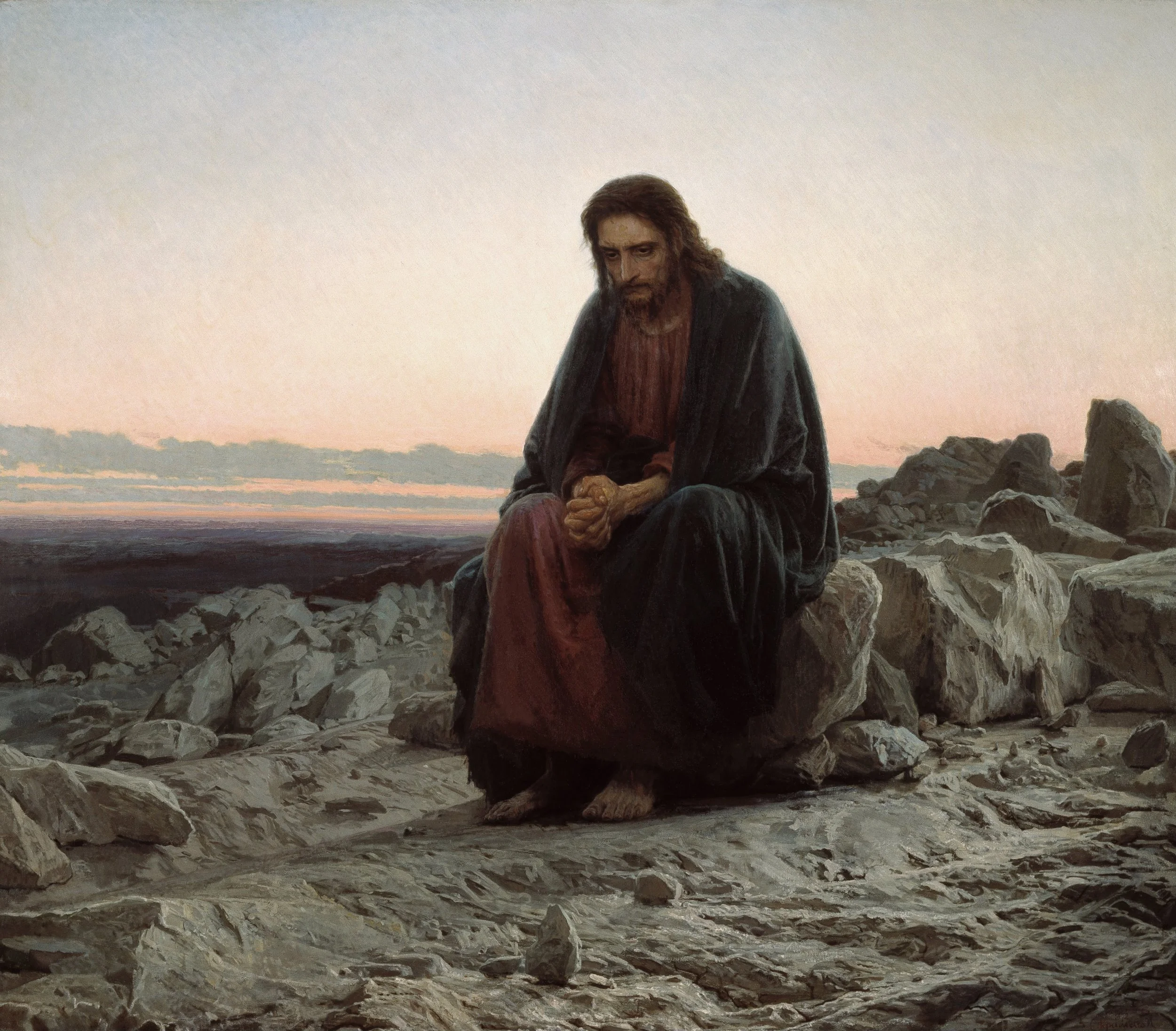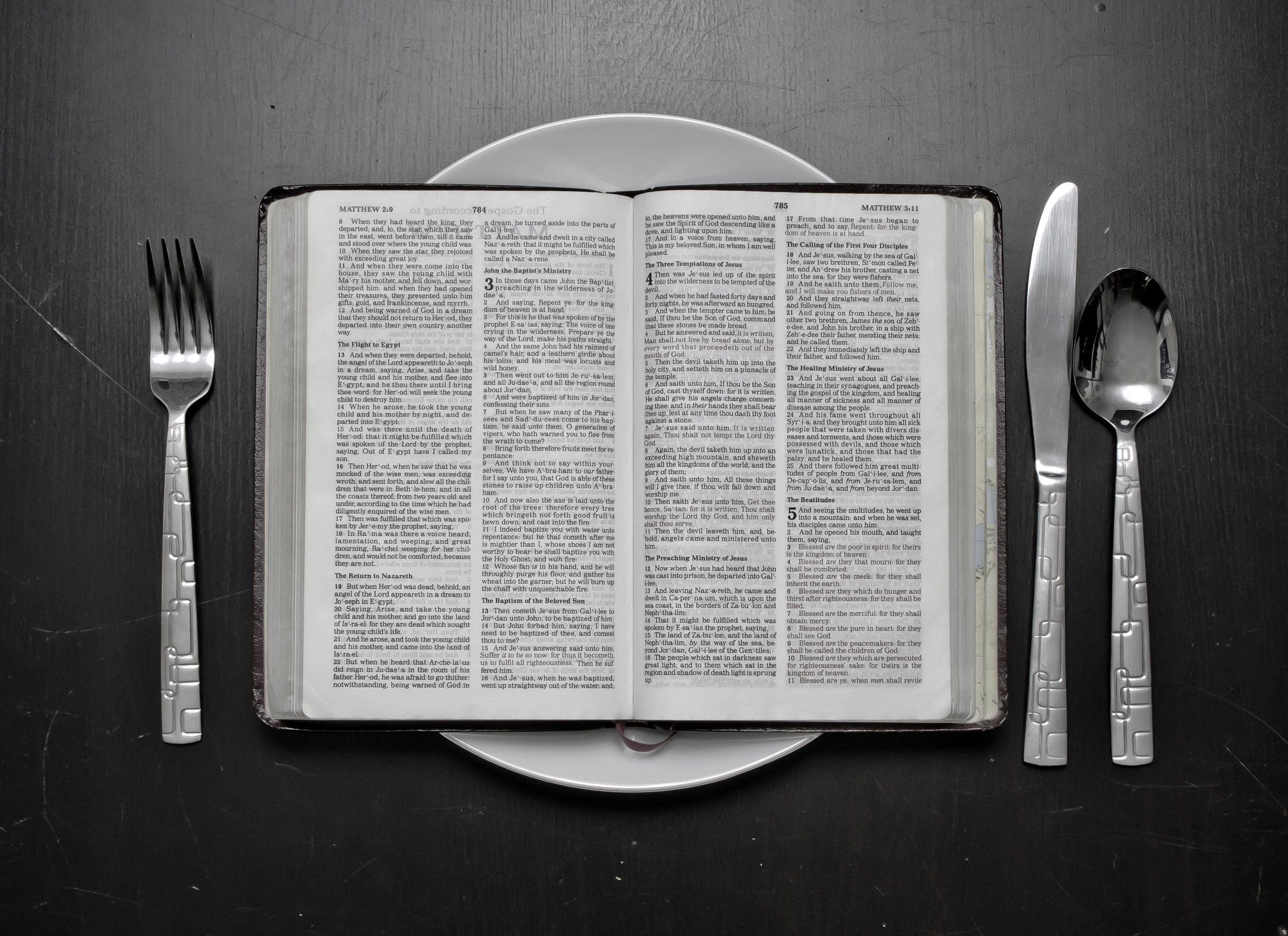A HOLY LENT (AND THE REST OF THE YEAR TOO)
Fasting is something that comes up as we begin Lent every year. It makes sense. For hundreds of years this time of the year has been set aside for preparation and as a special time to focus or refocus on the grace God has given us in Jesus Christ. In the current Book of Common Prayer (2019) as with it’s predecessor the Priest speaking in the name of the Church says,
I invite you, therefore, in the name of the Church, to the observance of a holy Lent: by self-examination and repentance; by prayer, fasting, and alms-giving; and by reading and meditating on God’s holy Word.
Each of these components is important and each helps us to draw nearer to Our Lord. Below they are broken out with a simple summary for each element
Self-Examination and Repentance - With the aid of the Holy Spirit asking, Where am I sinning and what do I need to turn away from?"
Prayer - How am I communicating with God in my daily life
Fasting - How am I abstaining and giving up things I love out of love for God?
Almsgiving - How am I giving particularly to help those in need in addition to giving to God?
Meditating on God’s Holy Word (the Scriptures) - How am I taking time to internalize Scripture?
All of these are important spiritual disciplines. Fasting seems to get all the attention, but remarkably most know very little about the subject. I thought I would give a very brief explanation of this discipline and how it is observed in the Anglican Communion.
Fasting in Scripture
First of all, regarding fasting, we need look no further that Our Lord Jesus’ example of fasting and prayer for forty days and nights in the synoptic Gospels at the beginning of his ministry (Mt. 4, Lk. 4). Fasting in an important part of our chief example.
Famously in the Ash Wednesday readings, Our Lord Jesus gives instructions on how his followers are to fast to please God (Mt.6). It must be done in proper disposition of the heart. A lot can be said about fasting in the Old Testament as well. It is a mark of sorrow, grief, and repentance. But it is a turning away of self and turning towards God.
Fasting in Christian tradition
While originating in the Hebrew tradition, fasting has also long been a part of Christian spiritual discipline. From Jesus’ commendation of it, the Church continued the practice particularly when seeking the will of God (Acts 14:23). In the Didache (a document of catechesis dated to around the turn of the first century) an early prescription of regular fasting was commended.
Let not your fastings be with the hypocrites, for they fast on the second and the fifth day of the week; but keep your fast on the fourth and on the preparation day. Didache 8.1
In accordance with this instruction, early Christians fasted on Wednesdays and Fridays throughout the year; this has evolved and changed over the years. In addition to regular fasts on Wednesdays and Fridays, (and then just Fridays), it became regular for Christians to fast during days preceding feasts and seasons of pentience. The Protestant Reformation retained fasting as well. The 1662 Book of Common Prayer prescribes:
A TABLE OF FASTS, AND DAYS OF ABSTINENCE TO BE OBSERVED IN THE YEAR
The Evens or Vigils Before:
The Nativity of Our Lord
The Purification of the Blessed Virgin Mary
The Annunciation of the Blessed Virgin Mary
Easter Day
Ascension Day
Pentecost
S. Matthias
S. John the Bapist
S. Peter
S. James
S. Bartholemew
S. Matthew
S. Simon and S. Jude
S. Andrew
S. Thomas
All SaintsI. The Forty Days of Lent
II. The Ember Days at the Four Seasons
III.The Three Rogation Days
IV. All Fridays in the Year, except CHRISTMAS DAY (1662 Book of Common Prayer, page lvi.)
The 2019 Book of Common Prayer also lists fast days in its section entitled The Calendar of the Christian Year. It does lighten fasting with word like “encouraged” and “may” and eliminates the vigil fasts of the 1662 book.
DAYS OF DISCIPLINE, DENIAL AND SPECIAL PRAYER
Ash Wednesday, the first day of Lent, and Good Friday, the day of our Lord’s Crucifixion, are traditionally days of special devotion and total abstinence. Maundy Thursday is observed with rites recalling the Last Supper and betrayal at Gethsemane.
The weekdays of Lent and every Friday of the year (outside the 12 Days of Christmas and the 50 days of Eastertide) are encouraged as days of fasting. Ember Days and Rogation Days may also be kept in this way.
Fasting, in addition to reduced consumption, normally also includes prayer, self-examination, and acts of mercy.
I think if we’re honest, most of us do not even meet the least requirements which may account for spiritual weakness (Mt. 17:21). While it is important not to get pharisaical about fasting. The reason the Church has set aside specific times is so we can help one another in our fast and focus our discipline. It is helpful in building unity of purpose. (2019 BCP, page 689)
Defining Terms: Abstinence Versus Fasting
Historically the following have been the Anglican rules regarding fasting and abstinence. (The might surprise you.)
Abstinence from flesh meat on Fridays throughout the year (except falling on Christmas or epiphany or between those feasts).
Fasting, usually meaning not more than a light breakfast, one full meal, and one half meal, of the forty days of Lent. (excepting Sundays)
Fasting and Abstinence on Ember Days and Fridays during Lent
Those who cannot choose their food (soldiers, certain employees, etc.) should eat what is set before them, although they should welcome the opportunity to observe abstinence. (It is understood, however, that in tropical countries where meat is hard to obtain and therefore not an ordinary part of diet, abstinence is commented to some other form of discipline than going without flesh meat.
Illness, old age, extreme youth, and heavy manual work excuse from fasting, but the major fast days of Ash Wednesday, and Good Friday should not be neglected except in cases of serious illness or other necessity of an absolute character.
The desire to imitate the stricter fasts of previous ages, or of saintly ascetics such as the Tractarians, may be a moving of divine love, or sometimes it may be a love of singularity. But since the practice may be unwise it should never be undertaken without consultation with a competent spiritual guide. (taken from St. Augustines Prayerbook, 2005)
I hope this has been helpful in understanding how we fast together with the wider Church around the world. It is important to remember that this is not a measure of holiness but an act of love and devotion to our Lord Jesus. Lent is an especially good time to consider how we can band together as sinners saved by grace and fight against the world, the flesh and the devil.


